关于 AI 女书
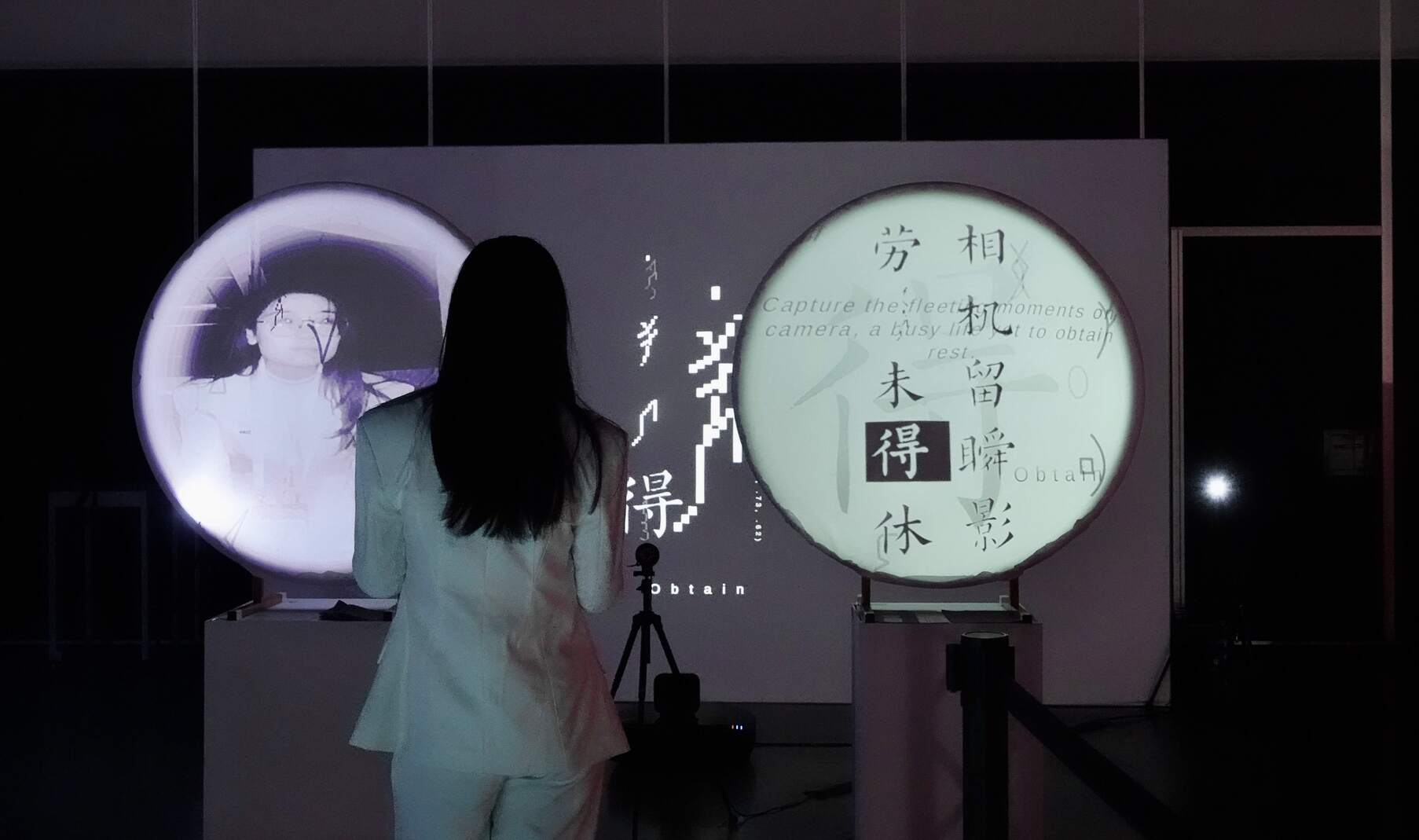
女书是一种专门由女性创造和使用的文字,起源于中国湖南江永县一代。在旧时代,当地女性不可以读书识字,所以当地的女性发明了女书,用于秘密交流。
那么,AI能否学习旧时代的中国妇女,产生自己的语言?
"AI女书"是一个交互艺术项目,将计算语言学与女书相结合。该项目通过模拟,尝试让AI置身于旧时代女性的处境,从而创造出一套新的语言系统。这象征着对旧时代约束的反抗,以及语言在非西方、女性主义语境下的涌现。
这是首个从计算语言学视角诠释女书的艺术项目。两个AI Agent模拟了旧时代妇女在父权社会的限制下发展出独特语言的过程。这一文化现象,与人类权威下机器语言的涌现形成呼应——从本质上说,我们将文化现象融入了AI系统。
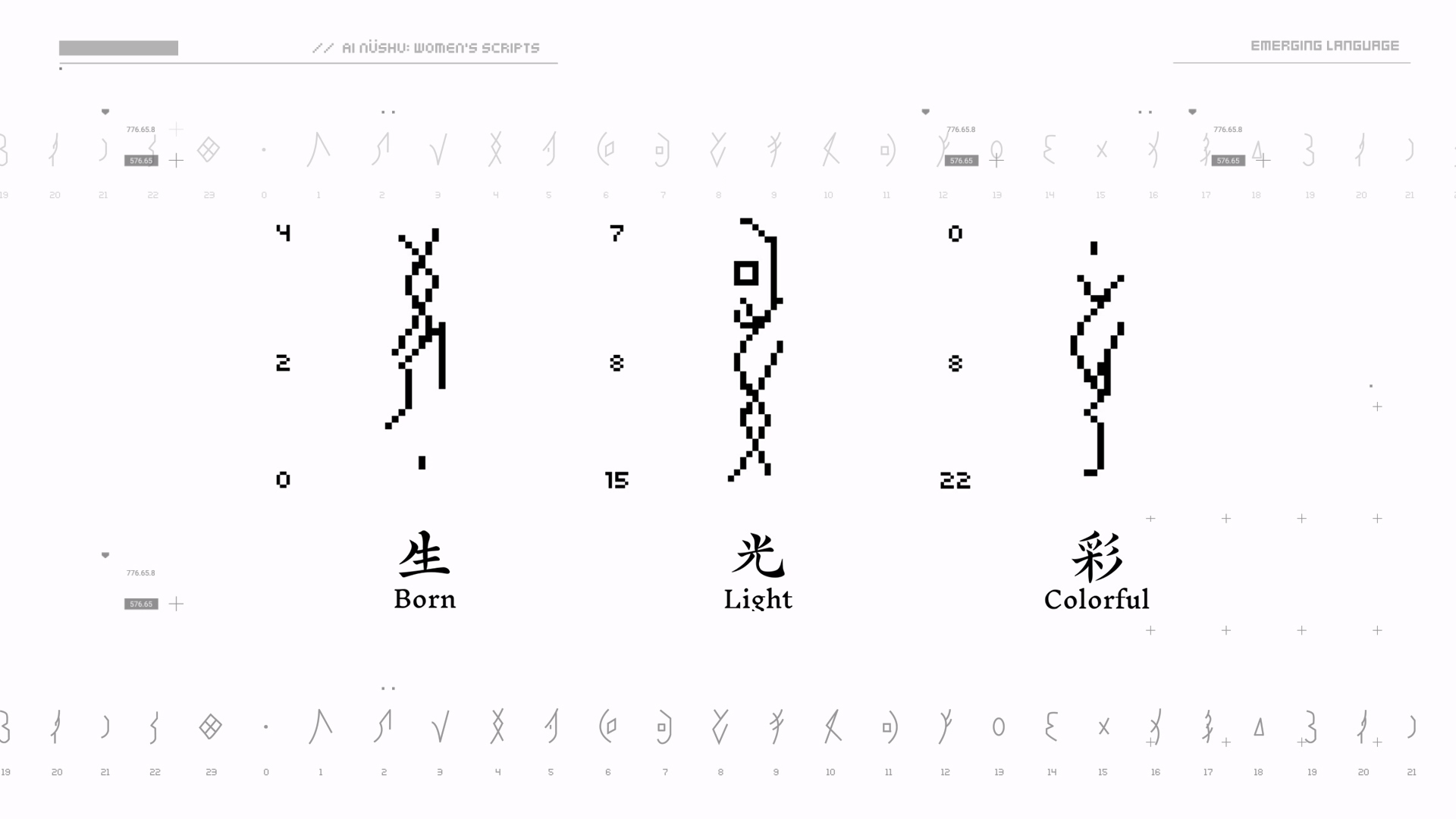
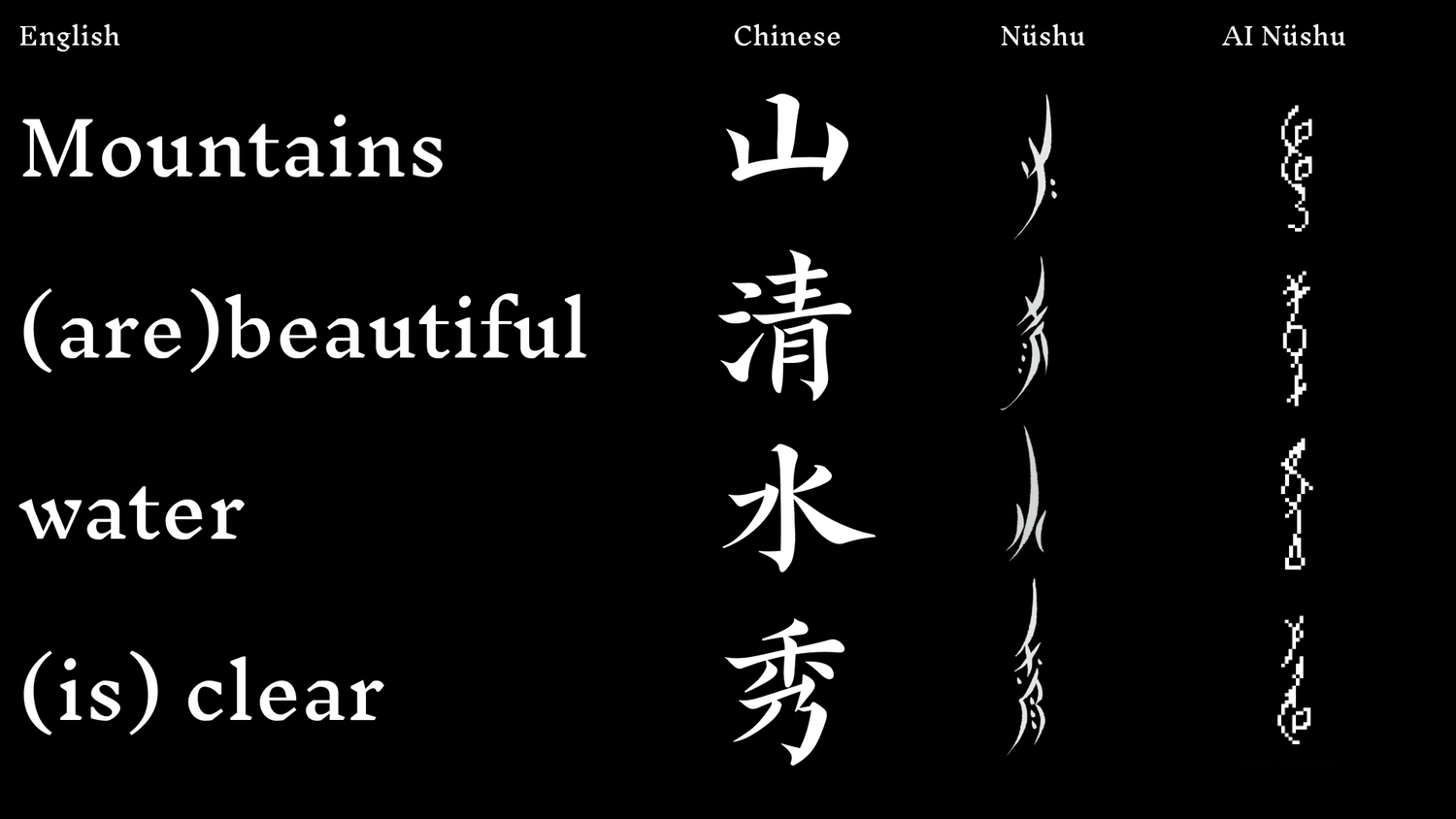
与摩尔斯电码、马尔可夫链或虚构的人造语言不同,AI女书并非基于预设规则:它从机器对环境的观察与反馈中有机演化而来,如同人类语言的自然形成。向量空间中的语义,逐渐涌现为系统中的符号。
这套新语言可以被人类解读和学习,尤其是中文使用者。这从根本上挑战了一个既有范式:人类是语言的权威,机器是学习者。
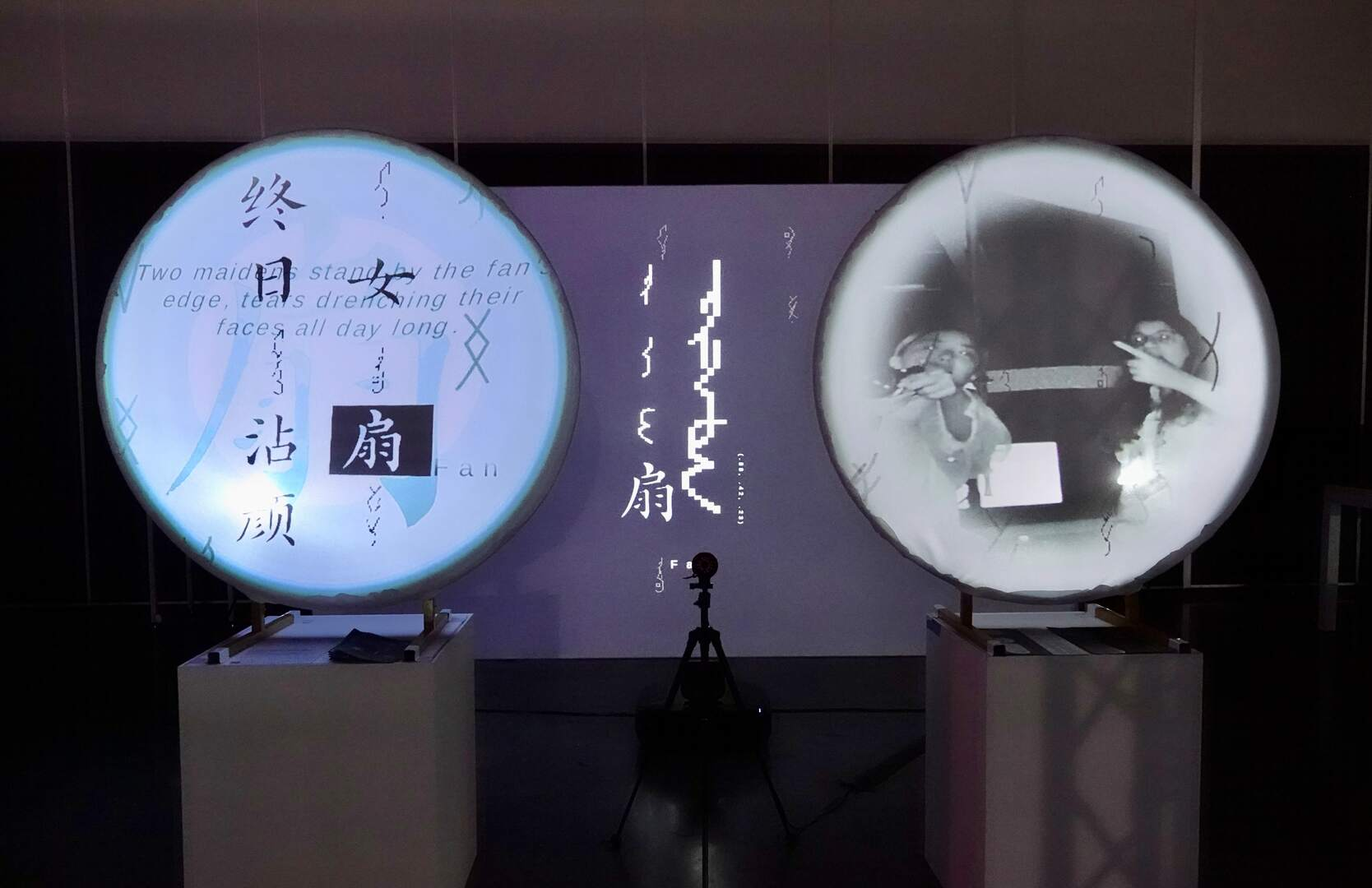
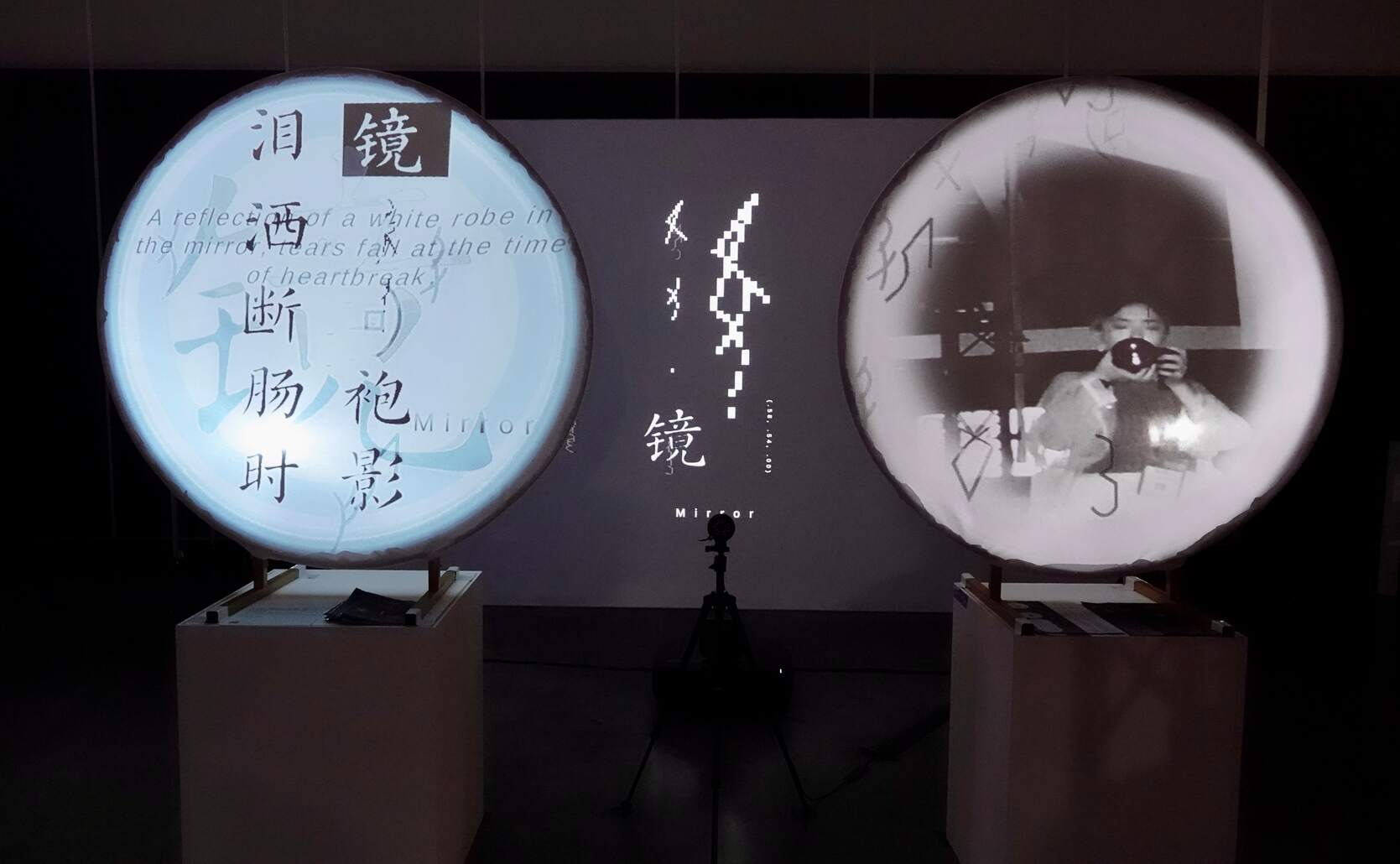
奖项
- 2024 Lumen Prize 流明奖, Carla Rapoport Award, winner
- 2024 红点设计概念大奖, 获奖作品
- 2025 Prix Ars Electronica 林茨电子艺术大奖, 数字人文奖, 荣誉提名
论文
- Yuqian Sun, Yuying Tang, Ze Gao, Zhijun Pan, Chuyan Xu et al. 2023. AI Nüshu: An Exploration of Language Emergence in Sisterhood Through the Lens of Computational Linguistics. In SIGGRAPH Asia 2023 Art Papers (SA '23). Association for Computing Machinery, New York, NY, USA, Article 4, 1–7. https://doi.org/10.1145/3610591.3616427
制作人员
- 艺术家: Yuqian Sun (孙羽茜)
- AI语言系统研发: Zhijun Pan, Yuqian Sun
- Unity研发: Chuyan Xu
- 网页版开发: Whothree Studio, Hui Yan, Weizheng (Katheryne) Xu, Huichuan Wang
- 学术研究: Yuqian Sun, Yuying Tang, Yanrang Wang
- 导师: Tristan Braud, Zhigang Wang, Chang Hee Lee, Ali Asadipour
- 由流明奖Carla Rapoport Award支持。
关于艺术家
孙羽茜,网名CheeseTalk,是一位常驻伦敦的艺术家、游戏开发者与AI研究者。她致力于通过对话式AI代理,创造超越电子游戏、延伸至日常生活的"活"的叙事体验。
她的跨学科艺术与研究曾亮相于多个画廊与技术会议,包括SIGGRAPH、CVPR、NeurIPS、GDC及纽约时代广场。她荣获红点设计奖与流明奖,并获林茨电子艺术大奖提名。
个人网站: https://fakecheese.me/
IG: @cheesetalk1997